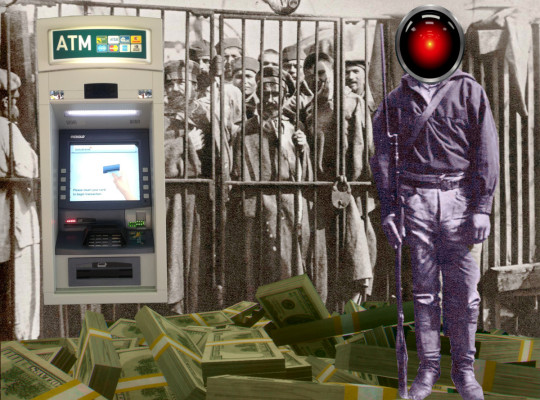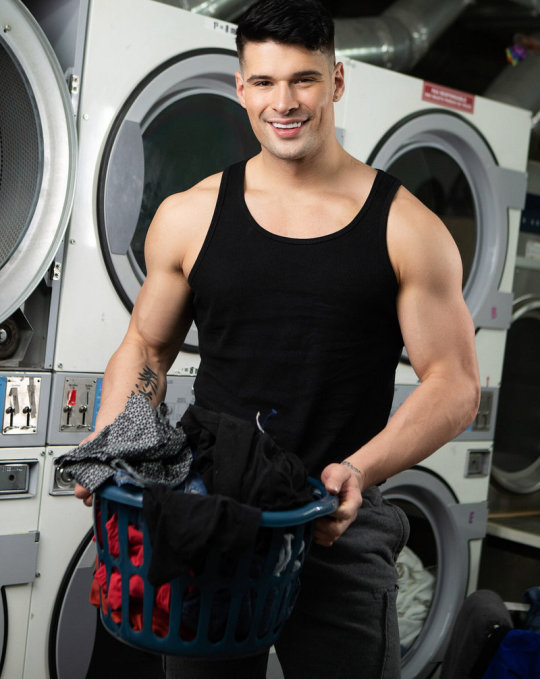#gtl
Text
Prison-tech company bribed jails to ban in-person visits

I'm on tour with my new, nationally bestselling novel The Bezzle! Catch me in BOSTON with Randall "XKCD" Munroe (Apr 11), then PROVIDENCE (Apr 12), and beyond!

Beware of geeks bearing gifts. When prison-tech companies started offering "free" tablets to America's vast army of prisoners, it set off alarm-bells for prison reform advocates – but not for the law-enforcement agencies that manage the great American carceral enterprise.
The pitch from these prison-tech companies was that they could cut the costs of locking people up while making jails and prisons safer. Hell, they'd even make life better for prisoners. And they'd do it for free!
These prison tablets would give every prisoner their own phone and their own video-conferencing terminal. They'd supply email, of course, and all the world's books, music, movies and games. Prisoners could maintain connections with the outside world, from family to continuing education. Sounds too good to be true, huh?
Here's the catch: all of these services are blisteringly expensive. Prisoners are accustomed to being gouged on phone calls – for years, prisons have done deals with private telcos that charge a fortune for prisoners' calls and split the take with prison administrators – but even by those standards, the calls you make on a tablet are still a ripoff.
Sure, there are some prisoners for whom money is no object – wealthy people who screwed up so bad they can't get bail and are stewing in a county lockup, along with the odd rich murderer or scammer serving a long bid. But most prisoners are poor. They start poor – the cops are more likely to arrest poor people than rich people, even for the same crime, and the poorer you are, the more likely you are to get convicted or be suckered into a plea bargain with a long sentence. State legislatures are easy to whip up into a froth about minimum sentences for shoplifters who steal $7 deodorant sticks, but they are wildly indifferent to the store owner's rampant wage-theft. Wage theft is by far the most costly form of property crime in America and it is almost entirely ignored:
https://www.theguardian.com/us-news/2023/jun/15/wage-theft-us-workers-employees
So America's prisons are heaving with its poorest citizens, and they're certainly not getting any richer while they're inside. While many prisoners hold jobs – prisoners produce $2b/year in goods and $9b/year in services – the average prison wage is $0.52/hour:
https://www.dollarsandsense.org/archives/2024/0324bowman.html
(In six states, prisoners get nothing; North Carolina law bans paying prisoners more than $1/day, the 13th Amendment to the US Constitution explicitly permits slavery – forced labor without pay – for prisoners.)
Likewise, prisoners' families are poor. They start poor – being poor is a strong correlate of being an American prisoner – and then one of their breadwinners is put behind bars, taking their income with them. The family savings go to paying a lawyer.
Prison-tech is a bet that these poor people, locked up and paid $1/day or less; or their families, deprived of an earner and in debt to a lawyer; will somehow come up with cash to pay $13 for a 20-minute phone call, $3 for an MP3, or double the Kindle price for an ebook.
How do you convince a prisoner earning $0.52/hour to spend $13 on a phone-call?
Well, for Securus and Viapath (AKA Global Tellink) – a pair of private equity backed prison monopolists who have swallowed nearly all their competitors – the answer was simple: they bribed prison officials to get rid of the prison phones.
Not just the phones, either: a pair of Michigan suits brought by the Civil Rights Corps accuse sheriffs and the state Department of Corrections of ending in-person visits in exchange for kickbacks from the money that prisoners' families would pay once the only way to reach their loved ones was over the "free" tablets:
https://arstechnica.com/tech-policy/2024/03/jails-banned-family-visits-to-make-more-money-on-video-calls-lawsuits-claim/
These two cases are just the tip of the iceberg; Civil Rights Corps says there are hundreds of jails and prisons where Securus and Viapath have struck similar corrupt bargains:
https://civilrightscorps.org/case/port-huron-michigan-right2hug/
And it's not just visits and calls. Prison-tech companies have convinced jails and prisons to eliminate mail and parcels. Letters to prisoners are scanned and delivered their tablets, at a price. Prisoners – and their loved ones – have to buy virtual "postage stamps" and pay one stamp per "page" of email. Scanned letters (say, hand-drawn birthday cards from your kids) cost several stamps:
https://pluralistic.net/2024/02/14/minnesota-nice/#shitty-technology-adoption-curve
Prisons and jails have also been convinced to eliminate their libraries and continuing education programs, and to get rid of TVs and recreational equipment. That way, prisoners will pay vastly inflated prices for streaming videos and DRM-locked music.
The icing on the cake? If the prison changes providers, all that data is wiped out – a prisoner serving decades of time will lose their music library, their kids' letters, the books they love. They can get some of that back – by working for $1/day – but the personal stuff? It's just gone.
Readers of my novels know all this. A prison-tech scam just like the one described in the Civil Rights Corps suits is at the center of my latest novel The Bezzle:
https://us.macmillan.com/books/9781250865878/thebezzle
Prison-tech has haunted me for years. At first, it was just the normal horror anyone with a shred of empathy would feel for prisoners and their families, captive customers for sadistic "businesses" that have figured out how to get the poorest, most desperate people in the country to make them billions. In the novel, I call prison-tech "a machine":
a million-armed robot whose every limb was tipped with a needle that sank itself into a different place on prisoners and their families and drew out a few more cc’s of blood.
But over time, that furious empathy gave way to dread. Prisoners are at the bottom of the shitty technology adoption curve. They endure the technological torments that haven't yet been sanded down on their bodies, normalized enough to impose them on people with a little more privilege and agency. I'm a long way up the curve from prisoners, but while the shitty technology curve may grind slow, it grinds fine:
https://pluralistic.net/2021/02/24/gwb-rumsfeld-monsters/#bossware
The future isn't here, it's just not evenly distributed. Prisoners are the ultimate early adopters of the technology that the richest, most powerful, most sadistic people in the country's corporate board-rooms would like to force us all to use.

If you'd like an essay-formatted version of this post to read or share, here's a link to it on pluralistic.net, my surveillance-free, ad-free, tracker-free blog:
https://pluralistic.net/2024/04/02/captive-customers/#guillotine-watch

Image:
Cryteria (modified)
https://commons.wikimedia.org/wiki/File:HAL9000.svg
CC BY 3.0
https://creativecommons.org/licenses/by/3.0/deed.en
--
Flying Logos
https://commons.wikimedia.org/wiki/File:Over_$1,000,000_dollars_in_USD_$100_bill_stacks.png
CC BY-SA 4.0
https://creativecommons.org/licenses/by-sa/4.0/deed.en
--
KGBO
https://commons.wikimedia.org/wiki/File:Suncorp_Bank_ATM.jpg
CC BY-SA 3.0
https://creativecommons.org/licenses/by-sa/3.0/deed.en
#pluralistic#prison#prison-tech#marty hench#the bezzle#securus#captive audiences#St Clair County#human rights#prisoners rights#viapath#gtl#global tellink#Genesee County#michigan#guillotine watch#carceral state#corruption
1K notes
·
View notes
Text

i need a good sunbathing sesh rn, and maybe some ice cream after...🤍🤍
#gardengirl222#early 2000s#pink y2k#trashy y2k#mcbling#the hills#heidi montag#so 2000s#tanning!#im tanorexic!#GTL#2000s nostalgia#2000s aesthetic#vs 2014#it girl#pink pilates princess
58 notes
·
View notes
Text

A selfie never hurt anyone
#personal#selfie#latina#makeup#cute#mexican#mexico#fitness#gtl#me#80’s themed party#80’s music#birthday party#aquarius#Aquarius season
56 notes
·
View notes
Text

words I live by
#snooki#jersey shore#gtl#get crazy#lmfaoo#y2k#2000s aesthetic#lolz#jwoww#snooki and jwoww#mcbling#early 2000s
957 notes
·
View notes
Text

Snooki and Mike throwback
33 notes
·
View notes
Note
what do u think nolpat thought of Nico dressed as the “sopranos” before the game?? into it maybe… regrets unfollowing… sliding back into Nico’s dms…
He probably found Nico and his teams little Soprano fits amusing… most likely confused and needed clarification to what they were going for… but definitely was into it.
I think his temptation to maybe tap that refollow button and give an apology, was when he saw Nico in his true glory, making history and scoring 32 seconds right in the first period.
#this bitch watched it I just feel it in my bones#I know he peeps nhl ig on the low#I feel like he only got the rocky tracksuit reference#and then was like wtf is new jersey#bro… new jersey should’ve done some jersey shore guido shit#GTL#RON!!!!!!#OH… they missed out on making history with that one#I also saw a clip of travis murdering luke hughes#nolan patrick#nolpat#nico hischier#philadephia flyers#new jersey devils#feb 24 subs
10 notes
·
View notes
Text






Men.com: Malik Delgaty
9 notes
·
View notes
Text
gym. tan. kill myself.
2 notes
·
View notes
Text

#early 2010s#early 2010s aesthetic#2010core#2010s#2010#jersey shore#gtl#reality tv#mtv#trashy y2k#mcbling#snooki#mike the situation
9 notes
·
View notes
Text
California to smash prison e-profiteers

On Weds (May 10), I’m in Vancouver for a keynote at the Open Source Summit and a book event for Red Team Blues at Heritage Hall and Thu (May 11), I’m in Calgary for Wordfest.

It’s a double-whammy that defines 21st century American life: a corporation gets caught doing something terrible, exploitative or even murderous, and a government agency steps in — only to discover that there’s nothing it can do, because Reagan/Trump/Clinton/Bush I/Bush II deregulated that industry and stripped the agency of enforcement powers.
If you’d like an essay-formatted version of this post to read or share, here’s a link to it on pluralistic.net, my surveillance-free, ad-free, tracker-free blog:
https://pluralistic.net/2023/05/08/captive-audience/#good-at-their-jobs
Man, that feels awful. The idea that extremists gutted our democratically accountable institutions so that there’s nothing they can do, no matter how egregious a corporation’s conduct is so demoralizing. Makes me feel like giving up.
But the law is a complex and mysterious thing. Regulators aren’t actually helpless. There are authorities, powers and systems that the corporate wreckers passed over, failed to notice, or failed to neuter. Take Section 5 of the FTC Act, which gives the Commission broad powers to prevent “unfair and deceptive” practices. Since the 1970s, the FTC just acted like this didn’t exist, even though it was right there all along, between Section 4 and Section 6.
Then, under the directorship of FTC chair Lina Khan, Section 5 was rediscovered and mobilized, first to end the practice of noncompete “agreements” for workers nationwide:
https://mattstoller.substack.com/p/antitrust-enforcers-to-ban-indentured
A new breed of supremely competent, progressive regulators are dusting off those old lawbooks and figuring out what powers they have, and they’re using those powers to Get Stuff Done. It’s like that old joke:
Office manager: $75 to kick the photocopier?
Repair person: No, it’s $5 to kick the photocopier, $70 to know where to kick it.
There’s a whole generation of expert photocopier-kickers in public life, and they’ve got their boots on:
https://pluralistic.net/2022/10/18/administrative-competence/#i-know-stuff
This is the upside of technocracy — where you have people who are appointed to do good things, and who want to do good things, and who figure out how to do good things. There are dormant powers everywhere in law. Remember when Southwest Air stranded a million passengers over Christmas week and Transport Secretary Pete Buttigieg responded by talking sternly about doing better, but without opening any enforcement actions against SWA?
At the time, Buttigieg’s defenders said that was all he could do: “Pete isn’t the boss of Southwest’s IT department, you know!” He’s not — but he is in possession of identical powers to the FTC to regulate “unfair and deceptive” practices, thanks to USC40 Section 41712(a), which copy-pastes the language from Article 5 of the FTC Act into the DOT’s legislative basis:
https://pluralistic.net/2023/01/10/the-courage-to-govern/#whos-in-charge
The failures of SWA were a long time coming, and were driven by the company’s shifting of costs from shareholders to employees and fliers. SWA schedules many flights for which they have no aircraft or crew, and when the time to fly those jets comes, the company simply cancels the emptiest flights. This is great for SWA’s shareholders, who don’t have to pay for fuel and crew for half-empty planes — but it’s terrible for crew and fliers.
What’s more, selling tickets for planes that don’t exist is plainly unfair and deceptive. A good photocopier-kicker in charge of the DOT would have arrived with a “first 100 days” plan that included opening hearings into this practice, as a prelude to directly regulating this conduct out of existence, averting the worst aviation scheduling crisis in US history. That’s what Buttigieg’s critics wanted from him: a competent assessment of his powers, followed by the vigorous use of those powers to protect the American people.
One domain that’s been in sore need of a photocopier-kicker for years is prison tech. America (“the land of the free”) incarcerates more people than any nation in the history of the world — more than the USSR, more than China, more than Apartheid-era South Africa.
For corporate prison profiteers, those prisoners are a literal captive audience, easy pickings for gouging on telephone calls, books, music, and food. For years, companies like Securus have been behind an incredibly imaginative array of sadistic tactics that strip prisoners of the contact, education and nutrition that governments normally provide to incarcerated people, and then sells those prisoners and their families poor substitutes for those necessities at markups that cost many multiples of the equivalent services in the free world.
Think of prisons that reduce the amount of food served to sub-starvation levels, then sell food at high markups in the prison commissary. For prisoners whose families can afford commissary fees, this is merely extortion. But for prisoners who don’t have anyone to top up their commissary accounts, it’s literal starvation.
This is the shape of every prison profiteer’s grift: take something vital away and then sell it back at a massive markup, dooming the prisoners who can’t afford it. The most obvious way to gouge prisoners is by charging huge markups for phone calls. Prisoners who can afford to pay many dollars per minute can stay in touch with their families, while the rest rot in isolation.
In 2015, the FCC tried to halt this practice, passing an order capping the price of calls, but in 2017, the DC District Court struck down the order, ruling that the FCC couldn’t regulate in-state call tariffs, which are the majority of prison calls:
https://www.cadc.uscourts.gov/internet/opinions.nsf/0/C62A026B396DD4C78525813E004F3BC5/%24file/15-1461-1679364.pdf
This was a bonanza for prison profiteers. Companies like Jpay (now a division of Securus) cranked up the price of prisoners’ calls. At the same time, dark-money lobbying campaigns urged prisons to get rid of their in-person visitation programs in the name of “safety”:
https://www.mic.com/articles/142779/the-end-of-prison-visitation
Not just visitation: prisons shuttered their libraries and banned shipments of letters, cards and books — again, in the same of “safety.” Jpay an its competitors stepped in with “free tablets” — cheap, badly made Chinese tablets. Instead of checking out books from the prison library or having them mailed to you by a friend or family member, prisoners had to buy DRM-locked ebooks at many multiples of the outside world price (these same prices were slapped on public domain books ganked from Project Gutenberg):
https://www.prisonpolicy.org/blog/2018/07/24/no-cost-contract/
Instead of getting letters and cards from your family members and friends, you had to pay to look at scans of them, buying “virtual stamps” that had to accompany every page (they even charged by the “page” for text messages):
https://www.wired.com/story/jpay-securus-prison-email-charging-millions/
Enshittification is my name for service-decay, where companies that have some kind of lock-in make things worse and worse for their customers, secure in the knowledge that they’ll keep paying because the lock-in keeps them from leaving. When your customers are literally locked in (that is, behind bars), the enshittification comes fast and furious.
Securus/Jpay and its competitors found all kinds of ways to make their services worse, like harvesting recordings of their calls to produce biometric voice-prints that could be used to track prisoners after they were released:
https://theintercept.com/2019/01/30/prison-voice-prints-databases-securus/
Of course, once the prison phone-carriers started harvesting prisoners’ phone calls, it was inevitable that they would leak those calls, including intimate calls with family members and privileged calls with lawyers:
https://www.aaronswartzday.org/securedrop-prisoner-data/
Prison-tech companies know they can extract huge fortunes from their captive audience, so they are shameless about offering bribes (ahem, “profit-sharing”) to prison authorities and sheriffs’ offices to switch vendors. When that happens, prisoners inevitably suffer, as happened in 2018, when Florida state prisons changed tech providers and wiped out $11.8m worth of prisoners purchased media — every song prisoners had paid for:
https://www.eff.org/deeplinks/2018/08/captive-audience-how-floridas-prisons-and-drm-made-113m-worth-prisoners-music
As bad as these deals are for prisoners, they’re great for jailers, who are personally and institutionally enriched by prison-tech giants. This is textbook corruption, in which small groups of individuals are enriched while vast, diffuse costs are extracted from large groups of people. Naturally, the deals themselves are swathed in secrecy, and public records requests for their details are met with blank, illegal refusals:
https://www.muckrock.com/news/archives/2018/may/25/laramie-county-prison-phones/
The “shitty technology adoption curve” predicts that technological harms that are first visited upon prisoners and other low-privilege people will gradually work its way up the privilege gradient:
https://pluralistic.net/2021/07/29/impunity-corrodes/#arise-ye-prisoners
Securus powered up the Shitty Tech Adoption Curve. They don’t just spy on and exploit prisoners — they leveraged that surveillance empire into a line of product lines that touch us all. Securus transformed their prisoner telephone tracking business into an off-the-books, warrantless tracking tool that cops everywhere use to illegally track people:
https://www.nytimes.com/2018/05/10/technology/cellphone-tracking-law-enforcement.html
In other words, our jails and prisons are incubators that breed digital pathogens that infect all of us eventually. It’s past time we got in the exterminators and flushed out those nests.
That’s where California’s new photocopier-kickers come in. Like many states, California has a Public Utility Commission (PUC), which regulates private companies that provide utilities, like telecoms. That means that the state of California can reach into every jail and prison in the state and grab the prison profiteers by the throats and toss ’em out the window.
Writing in The American Prospect, Kalena Thomhave does an excellent job on the technical ins-and-outs of calling on PUCs to regulate prison-tech, both in California and in other states where PUCs haven’t yet been neutered or eliminated by deregulation-crazed Republicans:
https://prospect.org/justice/2023-05-08-california-prison-phone-calls-free/
Thomhave describes how California’s county sheriffs have waxed fat on kickbacks from the prison-tech sector: “for example, the Yuba County Sheriff’s Office receives 25 percent of GTL/ViaPath’s gross revenue on video calls made from tablets.” Small wonder that sheriffs offices lobby against free calls from jail, claiming that prisoners’ phone tariffs are needed to fund their operations.
It’s true that the majority of this kickback money (51%) goes into “inmate welfare funds,” but these funds don’t have to go to inmates — they can and are diverted to “maintenance, salaries, travel, and equipment like security cameras.”
But limiting contact between prisoners and their families in order to pay for operating expenses is a foolish bargain. Isolation from friends and family is closely linked to recidivism. If we want prisoners to live productive lives after their serve their time, we should maximize their contact with the outside, not link it to their families’ ability to spend 50 times more per minute than anyone making a normal call.
The covid lockdowns were a boon to prison-tech profiteers, whose video-calling products were used to replace in-person visits. But when pandemic restrictions lifted, the in-person visits didn’t come back. Instead, jails continued to ban in-person visits and replace them with expensive video calls.
Even with new power, the FCC can’t directly regulate this activity, especially not in county jails. But PUCs can. Not every state has a PUC: ALEC, the right-wing legislation factory, has pushed laws that gut or eliminate PUCs across the country:
https://alec.org/model-policy/telecommunications-deregulation-policy-statement/
But California has a PUC, and it is gathering information now in advance of an order that could rein in these extractive businesses and halt the shitty tech adoption curve in its tracks:
https://docs.cpuc.ca.gov/PublishedDocs/Efile/G000/M478/K075/478075894.PDF
That’s some top-notch photocopier-kicking, right there.

Catch me on tour with Red Team Blues in Vancouver, Calgary, Toronto, DC, Gaithersburg, Oxford, Hay, Manchester, Nottingham, London, and Berlin!


[Image ID: A prison cell. Behind the bars is the bear from the California state flag. There is an old-fashioned telephone headset near his ear, such that he appears to be making a call.]
#pluralistic#smartprison#prison#prison-tech#photocopier kickers#california#carceral state#jail#profiteers#prison profiteers#marty hench#the bezzle#puc#jpay#public utility commission#Securus#global tellink#gtl#viapath#fcc#voip
45 notes
·
View notes
Text

The Sopranos Season 5, Episode 10: Cold Cuts #michael imperioli
#michael imperioli#the sopranos#new jersey#sobriety#emotion#emotional#emo#sad#teardrop#tears#Italian#gtl#neo noir#aesthetic
3 notes
·
View notes
Text


Happy thanksgiving
#thanksgiving#thanksgiving outfit#me#personal#selfie#latina#makeup#mexican#mexico#fitness#gtl#cute#snatched#mirror selfies#mirror#latinaselfie
82 notes
·
View notes
Text

"I definitely regret breaking my number one rule: never fall in love at the Jersey Shore.”
#jersey shore#love kills#girlblogging#girlblogger#amy winehouse#boardwalk#gtl#lizzy grant#sleazecore#trashy coquette#💔#ronni and sammi#sammi giancola
1 note
·
View note

